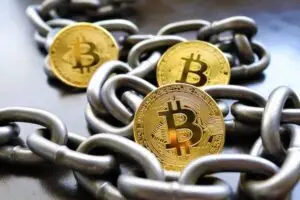Blockchain technology has surged beyond its initial applications in the financial sector, venturing into the exciting realm of gaming. This article delves into the intersection of blockchain and gaming, exploring the rise of non-fungible tokens (NFTs) and the transformative concept of digital ownership.
1. Introduction to Blockchain in Gaming
1.1 Definition of Blockchain
In essence, a blockchain is a decentralized and distributed ledger that records transactions across a network of computers. This technology ensures transparency, security, and immutability of data.
1.2 Emergence of Blockchain in Gaming
The gaming industry has embraced blockchain for its potential to revolutionize in-game economies, asset ownership, and community engagement.
2. Understanding NFTs in Gaming
2.1 What are NFTs?
NFTs, or non-fungible tokens, are unique digital assets that represent ownership of a specific item or piece of content. These tokens are indivisible and cannot be replicated, providing scarcity and exclusivity.
2.2 NFTs in the Gaming Ecosystem
NFTs have found a natural home in gaming, allowing players to truly own and trade in-game assets like characters, skins, and virtual real estate.
3. Digital Ownership Revolution
3.1 Traditional vs. Digital Ownership
Contrasting traditional ownership models, digital ownership empowers gamers with true possession and control over their virtual assets.
3.2 Benefits of Digital Ownership in Gaming
From increased player engagement to new revenue streams, digital ownership offers a myriad of advantages for both gamers and game developers.
4. Impact on In-Game Assets
4.1 Scarce and Unique Assets
Blockchain introduces scarcity to digital assets, making in-game items more valuable and desirable due to their limited availability.
4.2 Trading and Selling In-Game Items
Gamers can now trade and sell their virtual belongings securely, fostering a vibrant in-game economy.
5. Blockchain Gaming Platforms
5.1 Decentraland
Decentraland pioneers blockchain-based virtual worlds, allowing users to buy, sell, and build on virtual land.
5.2 Axie Infinity
Axie Infinity leverages NFTs for unique and collectible creatures that players can battle, breed, and trade.
5.3 Enjin
Enjin integrates blockchain to enable the creation and management of blockchain assets within games.
6. Challenges and Solutions
6.1 Scalability Issues
Blockchain faces challenges in handling large-scale gaming transactions, but ongoing developments aim to enhance scalability.
6.2 Environmental Concerns
The energy consumption of blockchain networks has raised environmental concerns, prompting the exploration of eco-friendly alternatives.
6.3 Security Measures
Ensuring the security of blockchain-based assets is crucial, and innovative security measures are continually evolving.
7. Future Trends in Blockchain Gaming
7.1 Integration of Virtual Reality
The integration of blockchain and virtual reality is poised to create immersive gaming experiences that redefine player interaction.
7.2 Cross-Platform Gaming
Blockchain’s ability to facilitate cross-platform gaming is set to break down barriers, allowing gamers on different platforms to engage seamlessly.
8. The Community Aspect
8.1 Building a Community around Blockchain Gaming
Community engagement becomes a cornerstone, with players actively participating in the development and growth of blockchain gaming ecosystems.
8.2 Social and Economic Implications
Blockchain gaming extends beyond entertainment, influencing social dynamics and creating economic opportunities within gaming communities.
9. Adoption Rates and Mainstream Recognition
9.1 Current Adoption Rates
While blockchain gaming is gaining traction, widespread adoption requires overcoming challenges and educating a broader audience.
9.2 Recognition by Major Game Developers
The acknowledgment and involvement of major game developers will play a pivotal role in legitimizing blockchain gaming.
10. Case Studies
10.1 Successful Implementation Stories
Examining successful cases where blockchain integration has enhanced gaming experiences and provided tangible benefits.
10.2 Lessons Learned
Drawing lessons from both successful and unsuccessful attempts to guide future developments in blockchain gaming.
11. Regulatory Landscape
11.1 Legal Frameworks and Regulations
Navigating the evolving legal landscape to ensure the legitimacy and compliance of blockchain gaming activities.
11.2 Government Responses
Understanding government responses and regulatory initiatives that impact the integration of blockchain in gaming.
12. Educating Gamers about Blockchain
12.1 Importance of User Education
Educating gamers on the benefits and mechanics of blockchain technology is crucial for widespread acceptance.
12.2 Strategies for Raising Awareness
Implementing effective strategies to raise awareness and educate gamers about the advantages of blockchain in gaming.
13. Beyond Gaming: Blockchain in eSports
13.1 Changing Dynamics of eSports
Blockchain is reshaping the landscape of eSports, impacting competition structures and viewer engagement.
13.2 Impact on Sponsorships and Prizes
The integration of blockchain in eSports is influencing sponsorship models and the distribution of tournament prizes.
14. Navigating the Cryptocurrency Landscape
14.1 Using Cryptocurrency in Gaming
Exploring the use of cryptocurrency within gaming ecosystems and its implications for players and developers.
14.2 Risks and Benefits
Understanding the risks and benefits associated with incorporating cryptocurrency in gaming transactions.
15. Conclusion
In conclusion, the fusion of blockchain and gaming, propelled by NFTs and digital ownership, marks a significant paradigm shift. As the industry navigates challenges, the potential for transformative experiences and economic opportunities is undeniable.
FAQs
What is the primary advantage of using NFTs in gaming?
- NFTs provide true ownership of in-game assets, allowing players to buy, sell, and trade digital items securely.
How does blockchain address scalability issues in gaming transactions?
- Ongoing developments aim to enhance the scalability of blockchain networks, ensuring they can handle large-scale gaming transactions.
What role does community engagement play in blockchain gaming?
- Community engagement is crucial, with players actively participating in the development and growth of blockchain gaming ecosystems.
Are there environmental concerns associated with blockchain in gaming?
- Yes, the energy consumption of blockchain networks has raised environmental concerns, prompting exploration of eco-friendly alternatives.
How can gamers be educated about blockchain technology?
- User education is vital, and effective strategies need to be implemented to raise awareness about the benefits of blockchain in gaming.




